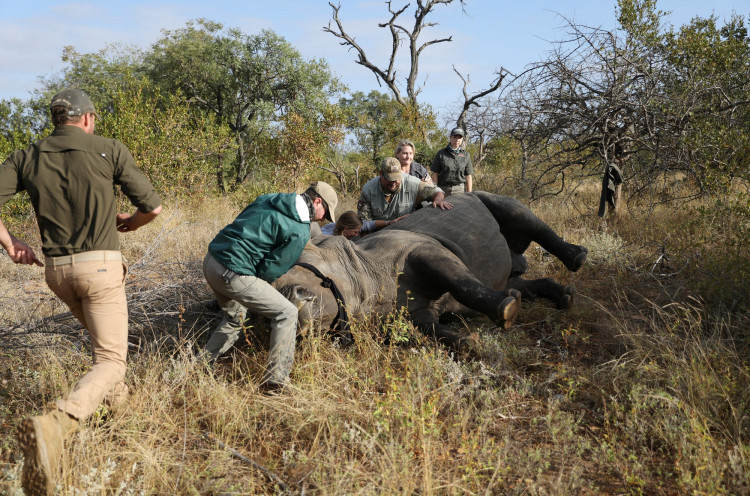South Africa is again facing the threat of rhino poaching as illegal hunters come out of hiding with COVID-19 restrictions eased since late last year.
"Since November, December last year and into 2021, this landscape and particularly Kruger National Park has been experiencing serious numbers of rhino poaching incidents," said Jo Shaw, the Africa Rhino Lead for WWF International Network.
The stringent travel restrictions, including international travel, imposed in March 2020 had the unintended consequence of keeping poachers at bay. In 2020, 394 rhinos were poached, 30% less than the previous year and the lowest annual total since 2011.
South Africa has approximately 16,000 rhinos within its boundaries, according to Frances Craigie, chief director of enforcement at the environmental ministry.
The demand for rhino horn in Asian countries, especially China and Vietnam, is accelerating rhino poaching.
Rhino horn is used in Traditional Chinese Medicine, but it is also increasingly common as a status symbol to show success and wealth. Poaching is now a concern in all rhino range states, but since South Africa has the majority of rhinos in the world, it is being heavily targeted.
Foreign criminal groups are now providing advanced equipment to poachers for them to track and kill rhinos. A tranquilizer gun is frequently used to subdue the rhino until its horn is cut off, leaving the rhino to bleed to death slowly and painfully.
The shortage of rhinos today, combined with the sporadic supply of rhino horn, pushes the price of horn even higher, putting even more strain on dwindling rhino populations.
"As restrictions over time have become less, there has been an uptick in poaching as a result," Julian Rademeyer, director of the organized crime observatory for east and southern Africa at the Global Initiative Against Transnational Organised Crime, told Reuters.
The South African Environmental Ministry is scheduled to issue half-year poaching figures for 2021 at the end of June.






